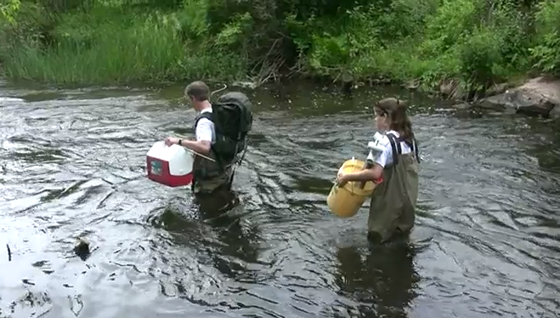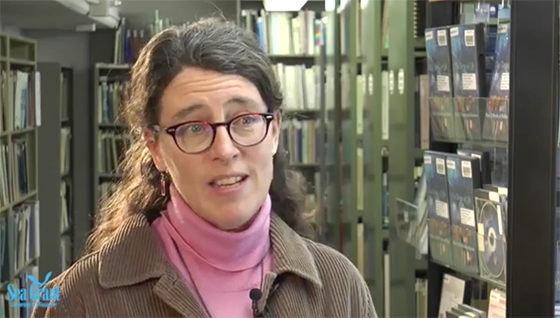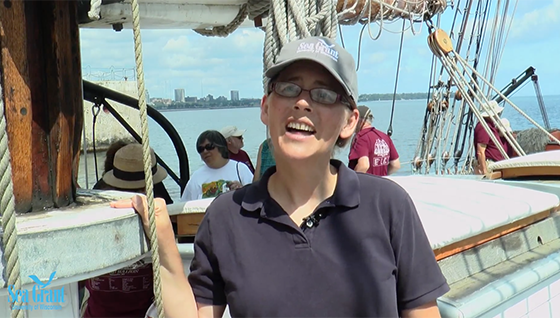Dr. Steve Loheide spent much of his childhood on the banks of Crystal, Fish and Mud Lakes in northern Dane County, Wisconsin. “I used to ride my bike between Fish Lake and Mud Lake. And they’re now one lake – they’re combined,” says Loheide.
Water levels in Crystal, Fish and Mud Lakes have fluctuated drastically for at least a century. Today, the lake is overflowing its banks, causing destruction of homes, businesses and crop land. The groundwater flooding at these internally drained basin lakes is caused by a slowly rising water table. What is causing the water table to rise? Loheide, ecohydrology professor at UW-Madison and his collaborators Dr. Ken Potter and Ph.D. student Eric Kastelic ask that question in their project Biomanipulation of Groundwater Flooding, funded by the University of Wisconsin Water Resources Institute.
The research team hopes the data can help communities, like those surrounding Crystal, Fish and Mud Lakes, build resilient landscapes. If the research shows that large-scale tree plantings could be a viable solution to groundwater flooding in internally drained basins, Loheide could see this being explored as a strategy to help vulnerable communities.



